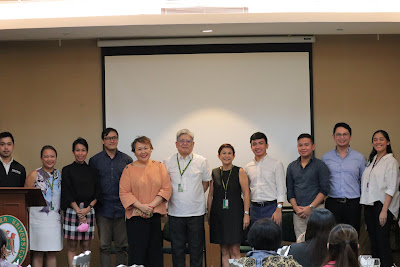Far Eastern University’s (FEU) educational research center, the Public Policy Center (PPC), is launching an online interactive portal to help combat disinformation and misinformation - giving teachers, students, and the general public easier access to correct and verified historical information.
Alongside misinformation, disinformation is a growing societal problem in the country. The manipulation of facts has led to fake news becoming rampant across social media and other sources. In addition, accounts surrounding some of the country's major historical events are also noted to be severely lacking. During the recent “#HearLiesTheTruth History Textbook Review: Online Interactive Publication” forum conducted by the FEU PPC, past research highlighted several discrepancies on the origins of Filipino values, or the history and culture of indigenous people.
The university also noted stereotyping as a common problem and saw activities that appealed to the emotion rather than being evidence-based, resulting in a lack of critical thinking skills and the building of historical prejudice among students.
More importantly, FEU found that school books failed to adequately cover the complete story of Martial Law and the 1986 People Power Revolution, as these covered only 10% of Araling Panlipunan textbooks. Actual discussions are insufficient as well, with both topics typically taking up a mere two lessons despite encompassing 14 years of Philippine history.
With the country recently commemorating the 50th anniversary of the Martial Law declaration, the FPPC is calling for a more thorough and accurate retelling of history, alongside a stronger battle against overall false news.
The online portal was launched during the #HearLiesTheTruth forum, focusing on The Dilemma of Philippine History Textbooks. This initiative is led by former National Historical Commission of the Philippines Chairperson and FPPC Trustee, Professor Emeritus of History Dr. Maria Serena Diokno, together with a group of educators from the UP Diliman Department of History.
“Textbooks are the primary, and in many instances the sole learning resource for our students and teachers. The history told here must always be factual,” says Diokno. “Our online portal aims to correct the historical inaccuracies and build civic education for the younger generation. They must be aware of our nation’s past and continued struggle to build a free and democratic society, in a manner that is founded in true history,” she adds.
The interactive portal can be freely accessed by anyone who wishes to dive deeper into the facts and correct the long standing inaccuracies perpetuated throughout our history. However, the FPPC hopes that it is other educational institutions, teachers, and students who become the primary users of the website. As educators, FEU sees it as their shared responsibility to make sure that the history being passed down to the youth is accurate and without bias. It is also their duty to encourage fact-checking and critical analysis of information shared, whether online through lessons or other avenues.
“Improving the quality and reliability of our historical narratives is imperative, now more than ever. We’re facing a tough enemy that's plaguing the news and the education system,” says FEU President Dr. Michael M. Alba. “We’re hopeful that our work shines a more accurate light on our past and enhances the depth of understanding about our history, ourselves, and our nation - eventually leading us towards a brighter and more inclusive future for this country that we all love,” he ends.
A replay of the forum is available on the FEU Public Policy Center Facebook page. Meanwhile, the online portal is accessible via https://tinyurl.com/HearLiesTheTruth.


Comments
Post a Comment